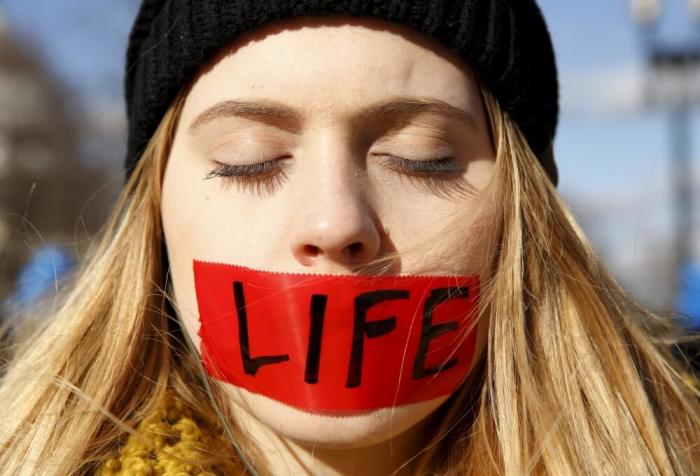Federal Judge to Tenn. Pro-Lifers: Your Votes Don't Count

A Tennessee federal judge has ruled that ballots on Amendment 1 to the state's constitution, which was against protecting a "right" to or funding of abortion, must be recounted and that some of the "yes" votes should just be thrown out in the process. Tennessee is appealing the order.
The State of Tennessee is appealing the order of U.S. District Judge Kevin Sharp, an Obama appointee, who declared the method the state used to count votes for the amendment "fundamentally unfair" and in violation of due process and equal protection rights for voters under the U.S. Constitution, The Tennessean reported.
The judge said that the eight plaintiffs who voted against the amendment "were not accorded the same weight" as those who voted "yes."
"As a remedy, the Court will order a recount of the 2014 Election solely in relation to Amendment 1, but defer ruling on the question of whether the election on Amendment 1 should be voided," the ruling said, adding that it does not apply to three other amendments on the ballot the same year.
The judge also ordered state election officials to count only those votes that were cast by voters who also voted in the governor's race, meaning those who voted in favor of the amendment but didn't vote in the gubernatorial election will be excluded from the recount.
The judge based this decision on the language in the state's constitution, which says amendments are approved "by a majority of all the citizens of the state voting for Governor."
Tennessee has long recognized that to mean a majority of the number of voters who voted for governor. Due to this method of counting votes, amendment proponents can strategically increase their chances of success by voting "yes" on an amendment and not voting for governor. This is exactly what many Tennessee pro-lifers did.
Judge Sharp now says the constitution's language means only the votes of those who made a choice in the governors race should count. But only the votes for Amendment 1 must be recounted. Sharp did not conclude that his reinterpretation applies to all amendments.
As many as 80,000 votes were cast in the 2014 vote on Amendment 1.
"We obviously disagree with the federal court's decision," Tennessee Attorney General spokesman Harlow Sumerford was quoted as saying. "Simply put, deciding what vote is required to amend the Tennessee Constitution is a matter of state law to be determined by a Tennessee court."
Tennessee Right to Life President Brian Harris said in a statement that "the historic method of counting the votes and ratifying the results on Amendment 1 was followed in the exact way as every other amendment approved by the voters of our state. Having wasted millions of dollars trying to defeat Amendment 1 at the polls, Planned Parenthood is now asking the federal courts to do their dirty work and to steal the votes of hundreds of thousands of Tennesseans who voted yes on 1."
He added: "That's neither right nor fair and we remain confident that the will of the people will ultimately be upheld… You can't discriminate against one set of voters because you don't like the outcome of an election and expect that it won't have implications for other amendments passed by the exact same process and procedures."
David French, a legal expert and conservative columnist for National Review, argued that Judge Sharp has disenfranchised pro-life voters.
"In an opinion full of insulting asides and other potshots at amendment supporters, Sharp claimed that the votes of those who voted in the governor's race but against the amendment were 'not given the same weight' as those who voted for Amendment 1 but did not vote in the governor's race," he wrote. "In other words, he claimed that a voter who did not vote for governor but did vote for the amendment had more influence over the process than a voter who chose to vote in both elections. Yet that additional influence was the product not of discrimination but of voter choice, of deliberate voting strategy.
"The judge's solution to this fabricated problem was to give the votes of those who voted for the amendment but not for governor no weight at all. In other words, his concern for voting rights (he called the right to vote 'precious' and 'fundamental') was so strong that he just went ahead and disenfranchised thousands of voters who relied on longstanding state-government interpretations of its own constitution. Moreover, he signaled that even if a recount shows that the amendment would still pass under his new, judicially created standard, he may still rule that the election itself should be voided."




























